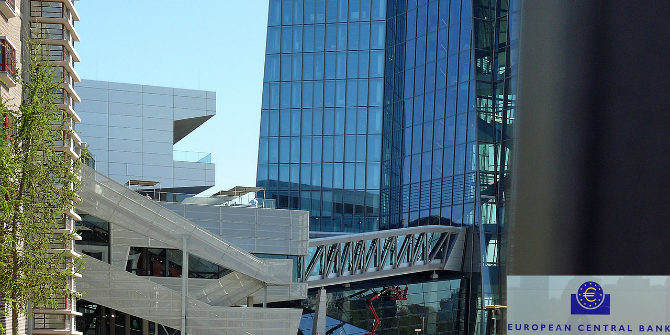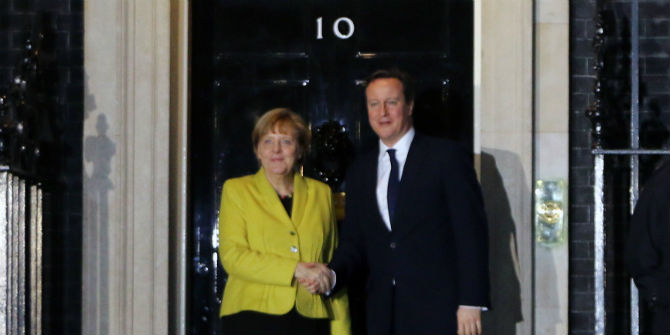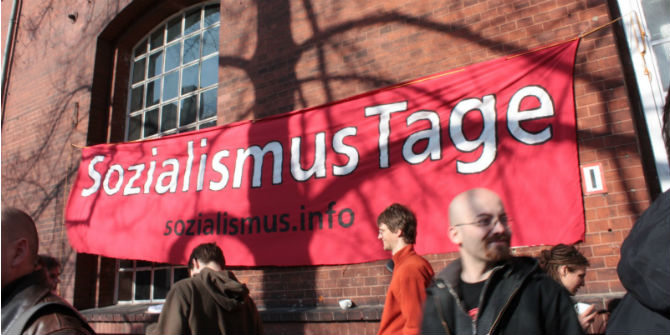If Britain votes to leave the EU it will have to negotiate its exit and a new post-withdrawal relationship with the EU. Often overlooked in the UK’s debate is the fact that any exit agreement and new relationship will have to be agreed by the remaining 27 EU member states and the European Parliament. What positions might they take in the negotiations? The LSE’s BrexitVote blog is running a series of overviews from each member state and the European Parliament setting out what positions they might take. Written by authors based at universities and research institutions across Europe, and compiled by the LSE’s Tim Oliver, the overviews build on an introductory piece in which Tim Oliver set out the various negotiations the EU will undertake in the event of a British exit. This post is the fifth in the series and gives views from Belgium, Hungary, Latvia, Slovakia, and Sweden.
Belgium: Support for the UK staying in the EU, but European integration has priority.
In historically pro-European Belgium, part of the population is concerned about a possible Brexit, while others are seizing the UK referendum as an opportunity to appeal for reform of the EU. Belgium has always expressed its support for UK membership within the EU as a strong and central Member State. However, as we saw during the negotiations at the February meeting of the European Council 2016, Belgium is also a strong partisan for a more integrated EU. Indeed, Belgium was one of the more enthusiastic supporters of the term ‘ever closer Union’ as well as freedom of movement as one of the pillar of European Integration.
In the event of a Brexit, one of Belgium’s priorities will be to continue on the path to greater integration – even if the EU has to simultaneously negotiate the withdrawal of the UK.
Belgium will not accept any ‘Plan B’ for the relationship between the EU and the UK. For the Belgian government, the UK has to be either out or in but cannot choose any ‘third way’ envisaged by some Member States. One thing is sure from the Belgian perspective: in the event of a Brexit, Belgium will not accept the creation of any ‘special status’ for the UK in order to save face. This is because of a fear of triggering a domino effect that sees other EU Member States demanding the same privileges.
Belgium’s position is clear: if the UK government sends an official letter to the president of the Council announcing that the UK intends to leave the EU, the only possible next step is to initiate the procedure outlined in Article 50 of the Treaty on the Functioning of the European Union (TFEU). Moreover, it will be complicated to negotiate a trade agreement between the UK and the EU and at the same time negotiate the UK’s withdrawal. Indeed, the Belgian position is to negotiate the exit first and a new trade deal second.
Whether the UK leaves the EU or not, Belgium wants to continue the integration process – especially at the Eurozone level. It is important for Belgium that any withdrawal negotiation undertaken with the UK does not block deeper integration. Indeed, the Belgian Government would see a Brexit as a possible opportunity to clarify the design and the finality of the European Union. In the same vein, Belgium places a lot of trust in ideas developed among the group of six founding Members States on the future of Europe.
The above is despite the fact that if the UK decides to leave the EU, Belgium will be one of most exposed EU Member States in economic terms. Belgium would suffer a particularly significant impact due to its exports and cross-investment with the UK, with an increase in business failures from 1.5% to 2.5%. Belgium is the UK’s fourth largest customer and its fourth largest supplier, exporting more than €17 billion in 2014. Britain is also the fourth largest provider for Belgium, with €11.9 billion of imports. The country has one of the largest trade surpluses with the UK, equal to 1.8% of GDP in 2013.
Fabian Willermain is a research fellow at Egmont, the Royal Institute for International Relations, Brussels. The opinions expressed by the author do not reflect the views of the Egmont Institute.
Hungary: Seeking a quick exit deal
In the case of a leave vote on June 23, 2016 Hungary would be interested in quick negotiations with the UK on the conditions of an exit. Presumably the UK would seek to maintain access to the single market (through EEA membership), preserve the privileged position of the City of London and its financial services in the territory of the EU. At the same time, we must also consider the possibility that the UK government, led by a new Prime Minister, could introduce new laws to accommodate populist political overtones regarding immigration.
The Hungarian perceptions towards a negotiated British exit from the European Union can be approached from three perspectives:
Primarily Hungary is part of the EU and shares a common negotiation platform with other EU member states – the general conditions of accessing the single market for the UK would be decided in that framework. Although Hungary alone is just a low-middle size member state regarding the voting rights in the EU, she would be on the side of the negotiation table consisting of 444 million people. And although the UK should have to negotiate an agreement with the EU, in practice the agreement should be reached with 27 different member states. A common EU position on the accessibility of the single market would not be easy without addressing the concerns of individual countries or block of countries.
Secondly Hungary along with the Visegrad 4 countries (Poland, Slovakia, the Czech Republic, Hungary) were very strong opponents of the UK’s attempt to limit the free movement of labour, and to cut the in-work and out-of-work benefits for migrants coming from the EU during Cameron’s renegotiation with EU member states in February 2016. Any further limitation would face strong resistance. Hungary’s primary aim would be to ensure that the Hungarian community living in the UK would not be further discriminated and future job seekers would enjoy the same conditions as far as possible. Approximately 300-500,000 Hungarians currently live in the UK, with the share of emigrants significantly increasing over the past five years. If the EEA model would be negotiated then Hungary and the V4 countries are expected to insist that the EEA membership rules should not be loosened – so accepting the free movement of people and contribution to the EU budget must remain intact. Comparing the current net budgetary contribution of the UK towards Hungary (keeping in mind that the British rebate has a significant negative impact on that) to the expected budgetary contribution from the outside, the latter could end up at somewhere the same level.
Thirdly, Hungary enjoys good but not outstanding trade relations with the UK. Nevertheless, Hungary would seek to ensure that any European level agreement should provide the same level of trade benefits for both countries. The UK ran a trade deficit with with Hungary (goods and services) in 2014, exporting £ 1.8 billion (0.8% of total export) while importing £ 3.1 billion (1% of total). The export includes mainly machinery and transport equipment (although the share of trade this makes up has fallen significantly in recent years), manufactured goods, chemicals and related products. Hungary main export markets are Germany and Austria, with the UK standing at 9th place with 3.6% of total exports. When it comes to imports the UK is not in the top 10 countries. As for financial and banking sectors, and the interests of the City of London, Hungary is dependent on credit from abroad, especially credit provided by the Eurozone. Hungary is not part of the EMU, but nevertheless a stable European fiscal and monetary environment is its primary interest. That is why a flexible agreement between the EU and the UK regarding the financial services market would get the backing of Hungary.
Dr Zoltán Gálik is an Associate Professor at Corvinus University of Budapest, International Studies Department
Latvia: Safeguarding the EU project
The Latvian government has not (at least in public) carried out an in-depth risk assessment of the potential impact of a Brexit on Latvia. This is mainly because there is a strong belief (and hope) that the UK referendum outcome will be that of staying in the EU. If the UK does vote to leave then the Latvian government would face several major concerns in regards to UK-EU exit negotiations:
First, regarding the security issues, Latvia considers the UK to be one of its most important security guarantors. This is a foreign policy priority, especially since the annexation of Crimea and war in Donbass. Latvia would therefore be worried about the loss from the EU of one of its major foreign, security and defence players.
Second, in relation to migration and the economy, the UK’s decision to leave the EU would have a heavy impact on Latvian citizens. The UK is among the most popular destinations for Latvian migrants, many of them residing in the country permanently (but not necessarily with a permanent resident status). Free movement is among the most popular advantages of the EU in Latvia, and there is a fear that Brexit might result in considerable limitations to this. The same applies to the economic benefits for intra-European trade, although the UK is not among Latvia’s main trading partners.
Third, politically Latvia is still strongly pro-European. And there is considerable fear that Brexit might trigger a domino effect in other eurosceptic countries. This reflects back on the Latvian security perception, with Latvia seeing EU membership (in addition to NATO) as a crucial security guarantee against potential Russian aggression.
It is important to stress that the Latvian government has sought to accommodate the UK to keep it in the EU, for example by agreeing to UK exceptions from European integration. And Latvia would not oppose some say for a UK that is outside the EU on some individual matters of mutual concern for both the EU and UK. However, the government insists that any changes to the current structures of cooperation should be done in accordance with EU legislation and should be based on mutual interests and ways that safeguard the EU project.
Ilvija Bruģe is a researcher at the Latvian Institute of International Affairs.
Slovakia: Quiet anticipation at the helm of the EU Council
If British voters decide to leave the EU, negotiations over London’s exit are likely to take at least a couple of years. Slovakia’s immediate concerns with a possible UK departure are therefore confined to consequences for the Slovak EU Council Presidency commencing on 1 July 2016 and ending on 31 December.
Slovakia’s worries relate to planning and execution of its presidential roles in Brussels. Brexit is the one known variable that could seriously derail intra-EU communication, agenda-setting and the political calendar. While Slovakia’s six-months rotating Council Presidency will inherit most legal dossiers from the current Dutch Presidency, a UK decision to leave the EU would sideline discussion on many issues in the legislative pipeline.
One area that will be disrupted are the planned negotiations on revising the existing multiannual EU financial framework until 2020. Slovakia’s Council Presidency would need to find a way to manage talks on future EU outlays without knowing what contributions and demands to account for from the UK. Should the EU still budget for any UK officials in Brussels by 2020? Questions, which might seem technical, will suddenly become political. Even routine calculations may cause headaches and delay decisions among member states.
Because the EU does not have a template for dealing with the exit of a member state, the Slovak EU Council Presidency has decided to delay presenting its priorities until 29 June in order to account for the UK’s decision and the need to develop an initial message and strategy after a Brexit decision. In the event of a vote to leave, the European Council meeting on 27 and 28 June would delineate basic parameters for future negotiations between Great Britain and a Union of 27 member states. The outcome of the June summit will help set more tangible ambitions and limits for Bratislava’s first EU Council Presidency.
A Brexit vote will make, EU politics more complicated. The EU Council is likely to be consumed by the consequences of a UK divorce. Existing divisions on policy questions are unlikely to disappear among an EU of 27 countries. On the contrary, a British decision to stay in the European club could help create political support for adopting swift decisions on the digital single market and capital markets union or steps towards a workable banking union. Instead, the UK’s good-bye to the European Union would become another variable for Slovakia’s juggling act in crisis management tasks inside the Council in Brussels. In Bratislava, therefore, many football fans watching England play Slovakia on 20 June are going to cross their fingers for a resounding YES in the UK on 23 June.
Vladimír Bilčík, Head of the EU Program at the Slovak Foreign Policy Association and Lecturer at Comenius University
Sweden: Prioritising geopolitics and cultural proximity with the UK
On June 23rd, as Swedes pickle their herring for this year’s midsummer festivities, they will follow closely the results from the UK referendum. Sweden is one of the member states with most to lose from a “Brexit” and support for the “Bremain” side is substantial. The reasons are pragmatic: Sweden and the UK tend to agree on issues such as free trade, the further development of the internal market and modernization of the EU budget. Adding to this, Sweden has strong bilateral ties to the UK with 8 billion euros worth of exports yearly. But perhaps most important, the UK offers shelter for life outside the Eurozone, a position swedes are keen to remain in. Without a big member state fighting (some) of its battles it will no doubt be more difficult for Sweden and other non-euro EU-members to balance the members of the common currency. Finally, as a non-member but ever closer partner of NATO, Sweden appreciates the role of the UK as a constructive actor in this realm. In case of Brexit, cooperation between the EU and NATO might suffer and the security policy orientation of the UK, Germany and France might deviate even further which would be highly problematic for Sweden as geopolitical tension is heating up in the Baltic Sea.
For these reasons the Swedish government was rather supportive during Cameron’s renegotiation and hopes to see continued UK membership in the EU.
If Swedes wake up on the 24rd and find that the British had voted to leave, the calculus will more or less stay the same and Sweden can be expected to play a constructive role during the ensuing exit negotiations. This does not mean that Sweden does not have interests of its own to secure: the city of Stockholm might try to attract some of London’s financial industries and step up the game in the competition over headquarters for global enterprises. On a political level, it has been argued that Sweden should play hardball in case of Brexit and deny the UK too sweet a deal, fearing that would unleash a domino effect and perhaps attract Swedish EU-sceptics as well. But geopolitical turbulence and perceived cultural proximity would likely trump these fears in a withdrawal negotiation. Sweden would still aim for a close bilateral relationship with the UK, a close relationship between the EU and UK and a UK that is engaged in European security. So if the Swedish midsummer festivities are followed by international brinkmanship – expect Stockholm to blink rather quickly.
Björn Fägersten is Senior Research Fellow and Head of Europe Program at the Swedish Institute of International Affairs.
This post represents the views of the authors and not those of BrexitVote, nor the LSE. Image: CC0 Public Domain
Dr Tim Oliver is a Dahrendorf Postdoctoral Fellow on Europe-North American relations at LSE IDEAS







